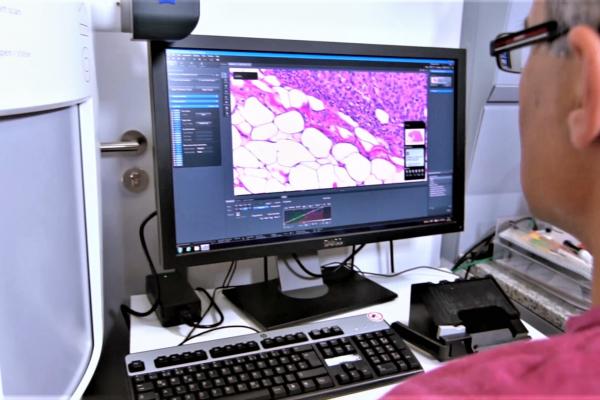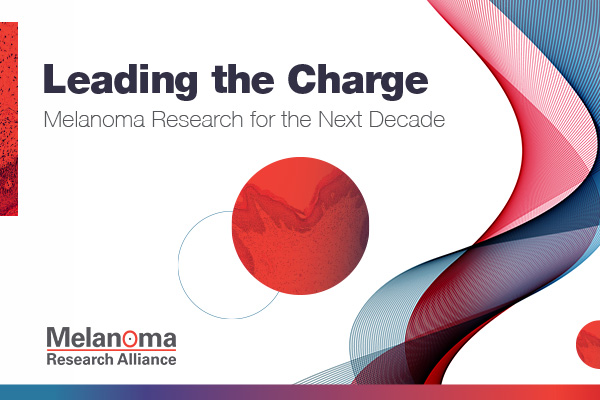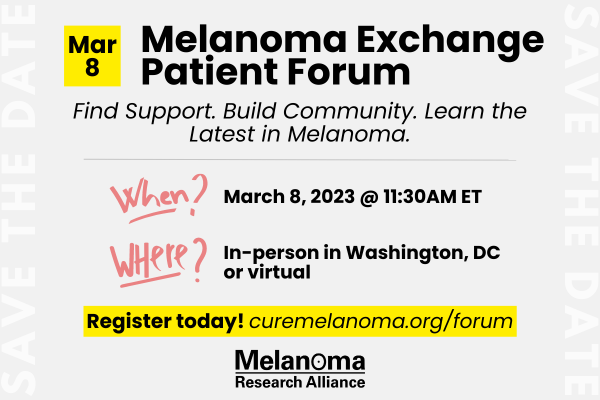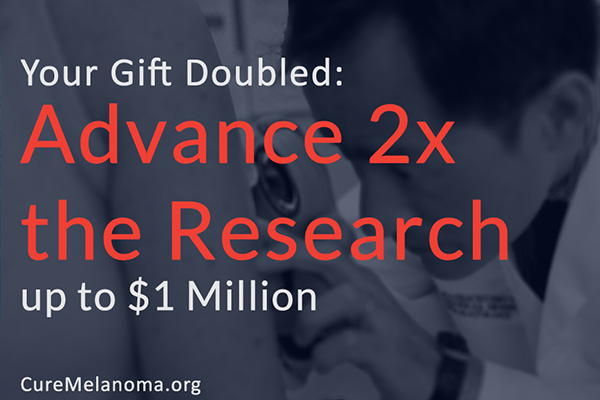News
Sun Safety for the Melanoma Community
21 February 2023 In Events, Prevention
During a panel conversation at MRA's 2022 Patient Forum, Tracy Callahan, a five-time survivor of melanoma, was joined by Drs. Susan Swetter, Maria Wei, and Rachel Vogel to discus how people affected by melanoma can keep themselves and their loved ones safe from new melanomas while living life to the fullest.
From COVID-19 to Melanoma? The Bright Future of mRNA Vaccines
By Cody Barnett, MPH, MRA Senior Director of Communications & Patient Engagement | 10 February 2023 In Science
Vaccines play an important role in keeping us healthy by protecting us from getting sick or by reducing the severity or duration of an illness. In addition to these preventive vaccines, researchers are also working to develop vaccines that treat disease, including melanoma, known as therapeutic vaccines.
Leading the Charge: MRA 2022 Annual Report
1 February 2023 In Allies & Partnerships, Melanoma Stories, News, Policy, Prevention, Science, Treatment
Since our inception in 2007, the Melanoma Research Alliance (MRA) has been laser-focused on advancing cutting-edge research needed to achieve our mission. With our singular vision, MRA stands as the largest private nonprofit funder of melanoma research in the world.
Melanoma at 33: A Testament to the Importance of Early Detection
By Renee Orcione, MRA Digital Engagement & Communications Manager | 23 January 2023 In Melanoma Stories
Before he landed his current office job in the energy sector, Matthew Ruiz worked outdoors for many years. He, along with many of his colleagues in the field, took very few precautions to protect themselves from harmful UV rays. As is the unfortunate reality for many people with a history of significant sun exposure, this lifestyle came full circle for Matthew in 2018 when he was diagnosed with melanoma.
Nearly 100,000 Americans Estimated to be Diagnosed with Melanoma in 2023
By Joan Levy, PhD - MRA Chief Science Officer | 19 January 2023 In News, Prevention, Science, Treatment
Each January, the American Cancer Society (ACS) releases updated estimates about trends in new cancer cases and deaths in its annual report, Cancer Facts and Figures. This report highlights the estimated incidence (number of new cases), prevalence (number of people alive today with a history of cancer), and survival statistics for cancer in the United States.
Registration Now Open: MRA's 2023 Patient Forum
19 January 2023 In Allies & Partnerships, Events, News, Prevention, Science, Treatment
Registration for MRA's Melanoma Exchange Patient Forum, held in-person in Washington DC and virtually on Wednesday, March 8, is now open. Register now to hear from leading experts in the melanoma field and have the opportunity to ask questions, discuss, and network with other people who are going through their own melanoma journey.
Pioneering New Treatment Strategies for Melanoma
11 January 2023
Over the last few decades, the melanoma research community has made tremendous progress detecting several genes that when altered cause melanoma, including those involved in melanoma’s growth and development. In addition, scientists have uncovered key enzymes that regulate the expression of critical tumor-associated genes — called epigenetic factors.
Ask the Experts: Melanoma Research Update
8 December 2022
From promising clinical trial results to new treatment approaches and an evolving standard of care, 2022 has proven to be an exciting year of advances in melanoma research. As MRA continues to look ahead, we also want to take a moment to reflect on these advances and what they mean for melanoma patients, families, and the community at large.
More Time, More Research, More Hope: Double your Impact!
29 November 2022 In Allies & Partnerships, Events, News
To share their gratitude for all those who are making a difference in melanoma research, our founders — Debra & Leon Black — are matching all gifts* to MRA up to $1 MILLION this holiday season. Donate Today!
Artificial Intelligence & Melanoma Detection: Closing the Gaps
15 November 2022
The earlier a cancer is detected, the better the patient’s prognosis. However, detecting melanoma isn't always clear cut. We currently identify melanoma based on subjective visual criteria and accuracy varies greatly from practitioner to practitioner and clinic to clinic. Artificial intelligence has the potential to improve this, but isn't quite ready for primetime.










